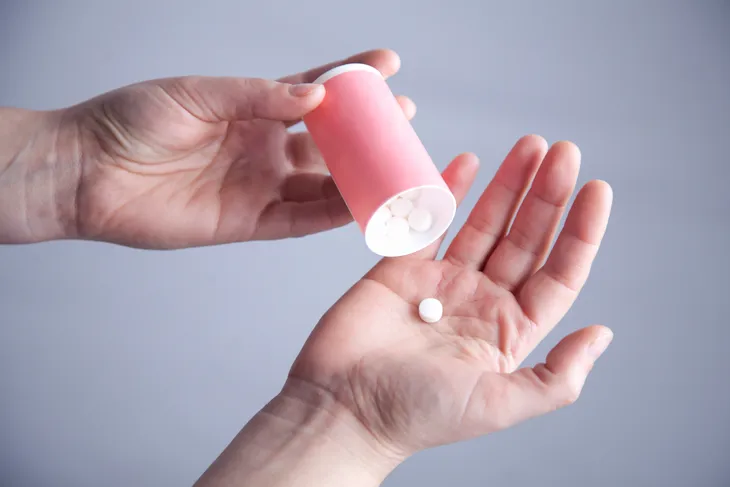I wish I would have known more about liver health before I was diagnosed with Budd Chiari Syndrome. Trying to play catch up after a liver disease diagnosis isn’t easy but it’s not impossible. So while I am waiting for my new liver, I try to do all that I can to keep my current liver as healthy as possible.
Our liver might not be the hardest working organ in our bodies but it is the busiest. It has over 500 tasks to manage daily. Always working — filtering, metabolizing, absorbing, storing and producing. All. Day. Long. It is overworked and underappreciated. But it is also the most forgiving organ. Did you know your liver is also the only organ that can actually regenerate and repair damage if it is caught early enough?
No Drinking
One of the first and most obvious things the doctors told me was to stop drinking. The thing about liver disease is that people are just going to assume that it was caused by excessive drinking. And while that is the case sometimes, it isn’t always. My liver damage was caused by blood clots forming thanks to a hereditary blood disorder. Not alcohol.
When we drink, our livers do their best to keep up, but they can only work so fast. The more a person drinks, the harder their liver will have to work. And when it can no longer filter the alcohol, you’ll become intoxicated and put yourself at risk for liver damage. Drinking should always be done responsibly.
When I was listed on the transplant list my doctors reminded me again that I was no longer allowed to drink and that doing so would jeopardize my chances of a transplant. Some hospitals require patients with alcohol related illnesses to be sober for a set amount of time before being evaluated for transplant.
Mindful of Medications
Another thing to be mindful of at home is what medications you are taking. Did you know that too much Acetaminophen is the most common cause of acute liver failure in the US! Talk to a doctor about medications and what you can and can’t take.
I was told that at home I can have ONE tylenol a day for pain. But if I were to need more pain relief that it would have to be in the hospital where I could be properly supervised. Our livers are responsible for processing medications. If it is not working properly the effects of the medication could be less or more than expected.
Manage Diet
Making changes to your diet is another thing you can do at home to help manage your liver disease. Eating at home is easiest because you are in control of what is going into your food. Eating out isn’t impossible, but it can be a bit tricky. Overhauling your diet sounds like a very intimidating task, but it doesn’t have to be.
In the beginning, I took a look at my diet and then started making baby steps toward my goals. That’s not to say I don’t ever enjoy a dinner out or have a few things here and there that I probably shouldn’t. I am human. I give myself some grace and try again.
Cut Salt
Cutting the salt is an easy way to prevent ascites and edema. And look out for hidden salt. If it comes in a box, bag or can, it will likely have a ton of sodium in it. Experimenting with new flavors and spices will help keep things interesting.
And while you are cutting down on salt, it’s important to lay off the sugar too. Eating too much can lead to fatty build up around the liver. I used to love sweet coffee and tea, but over the years have learned to enjoy them with less sugar too.
Eat Less Red Meat
One of the hardest changes I have made is eating less red meat. Our livers are in charge of breaking down proteins but when we eat too much the liver can’t keep up with processing and filtering it. This is dangerous because when these unprocessed toxins get into the bloodstream and reach the brain, Hepatic Encephalopathy can happen.
My doctors asked me to cut down on meat in general and to eat more plant based protein instead. Edamame and lentils are a great source of protein. Tofu and tempeh can be used as substitutes for meat. By taking my medication and eating only small amounts of meat, I have been able give my already struggling liver a break. Hepatic Encephalopathy is no joke. But just a few changes can really help.
Eat More Fruits and Veggies
You don’t have to give everything up though. Eat more fruits and veggies. Cruciferous veggies like broccoli and brussels sprouts are great. And spinach! Berries are full of antioxidants! Nuts and seeds are great too. And don’t forget about fiber from whole grains. Fiber is a must! Brown rice and whole wheat bread are better for you than the white varieties.
Drink More Water
I am always preaching the power of hydration. Water is important for so many reasons. Drinking water helps flush toxins out of your body. It helps the digestion process and eases the work needed by your liver. But did you know it also helps thin the blood? This makes it easier for your liver to filter the blood passing through it. I know it can get a little boring but, keep drinking your water.
Healthy Liver, Healthy Life
When I was first diagnosed with Budd Chiari Syndrome, the doctors told me I was going to eventually need a liver transplant. Since then, I have been doing all that I can to keep my body and liver as healthy as possible. For the last 12 years I have done just that. Little changes here and there.
Getting to know my body and what it does and doesn’t need. It’s not always easy, but there is nothing I want more than to live a full and happy life. And if making a few changes at home helps me do that, that’s what I’m going to do.











